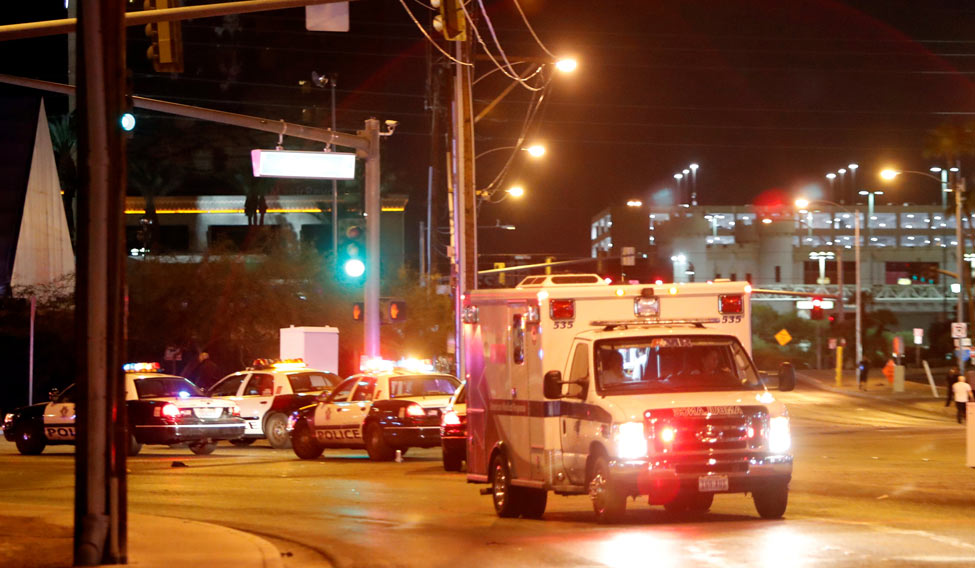It was the longest 50 minutes of firefighter Larry Haydu’s life.
When the assistant chief for the Clark County Fire Department got the call about a shooting at an outdoor country music concert in Las Vegas on Sunday night, he knew his daughter was in the crowd.
Rushing to the scene, he got a call on his personal cellphone from an unknown number. On the other end of the line were screams, the sound of chaos. Then the line went dead.
For nearly an hour, Haydu did not know if his daughter had escaped the slaughter he saw around him or was a victim of what was to be the deadliest mass shooting in recent U.S. history. Finally, she called, frantic but alive.
When he laid eyes on her, an hour and a half later, he recounted, “she was covered head to toe in blood.”
Bob Stout, a 13-year veteran of the department, was in the second vehicle to arrive on the scene. Shots were still being fired from an unknown location as it pulled up. Alerts on the screen of his rescue vehicle suggested the shots could be coming from a pellet gun. Not a chance, thought Stout, when he saw his first patient, a woman shot in the leg.
“It was a big hole in her leg,” he recalled. “There’s no way that was a pellet gun.”
Then things got more serious. Five other heavily wounded people suddenly appeared, two shot in the face, two in the chest and another in the abdomen. That group included a husband and wife: he was shot in the liver and she in the face.
“He knew he was in bad shape, but losing consciousness all the way to the hospital,” said Stout, who worked on the couple as they were transported together in an ambulance.
The husband and wife were able to talk to each other during that brief trip, Stout said: “That conversation was pretty heart-wrenching, gut-wrenching.”
He said he did not know whether they survived.
Stout was not done. The firefighter helped at the hospital after the wounded were wheeled into surgery, then rushed back to the crime scene, lights flashing and sirens wailing, speeding down the blocked-off roads.
His unit joined police to sweep the venue for survivors who may have hidden or gone unnoticed in the chaos, following blood trails to the parking lot, checking under the stage and inside portable toilets.
The scene was surreal, quiet, with trash blowing in the wind. Chairs were overturned, coolers scattered. A smoke machine on stage continued to spew out smoke.
Stout and his team found no more survivors. Instead, they saw about a dozen bodies.
For Deputy Fire Chief Roy Session, who directed the response from police headquarters about a quarter of a mile away, the evening was a blur.
Now, four days later, when Session looks at videos of people fleeing and firefighters rushing into the chaos, he has one prevailing thought.
“My guys were going to work.”





